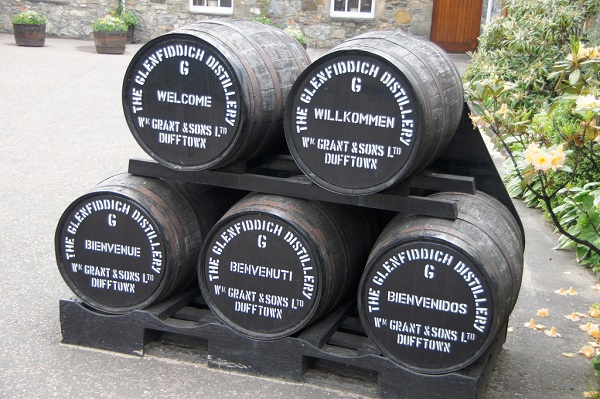
Credit: twicepix
Aging is chemistry. The spirit reacts with the burned wood barrel and that, over time, imparts different flavors. The longer you age, the more time chemistry has to work. Davis has figured out how to force the issue.
Personally, I think this is awesome.
I think that if he’s successful and he is able to create a 50-year old whisky in a very short period of time, I’ll one day be able to taste a close facsimile of a 50-year old whisky. I don’t think that you can replicate it completely (heck, by definition one 50-year old barrel’s contents will be different than one right next to it in storage!) but that doesn’t matter.
It’s close enough.
And it’ll be affordable enough, which is key.
And it won’t take anything away from existing 50-year old whiskies either. Part of the enjoyment of whisky is the story and there’s nothing super-romantic about “we chemistrified this frankenmalt to make it taste like it was aged 50 years.” It’s cool, but it’s not steeped in anything except science.
What do you think?

I have no problem with artificial aging by technology if the final product is of the same quality & of the same chemical makeup as a spirit that is naturally aged. The Scotch Whisky Associalte may have a fit with this for reasons, including, not being traditional to Scotch whisky. However, assuming that artificial aging is proper & of high quality, many other spirits (like, rums, American & Canadian whiskeys, brandies as the large category, & even wines & fortified wines) will jump on the technology & get a major jump on Scotch whiskys.
Slainte,
I have no problem with artificial aging by technology if the final product is of the same quality & of the same chemical makeup as a spirit that is naturally aged. The Scotch Whisky Associalte may have a fit with this for reasons, including, not being traditional to Scotch whisky. However, assuming that artificial aging is proper & of high quality, many other spirits (like, rums, American & Canadian whiskeys, brandies as the large category, & even wines & fortified wines) will jump on the technology & get a major jump on Scotch whiskys.
Slainte, Richard
Brittany,
Indeed, excellently & most well stated.
Brittany Harris set forth: “I have no problem with it as long as the company makes the distinction to customers. It should be priced less as well. A man made diamond is chemically the same as a diamond but the rarity of an item should still be taken into account.”
Yes, public disclosure of technologically enhanced aging should be required. Also, I guess that there should be no need for forced pricing of these enhanced aged spirits. The marketplace will nearly for sure take care of the pricing, most probably with lower prices due to lower costs driven by free market competition.
Further, I indeed have little knowledge of the details of artificial & real diamonds. However, I suspect that at even close viewing range, to the general viewer who might enjoy beautiful stones, real & artificial diamonds would look pretty much the same. Despite this, I could be wrong. 🙂
For better or worse, this enhanced aged spirits stuff might make the recent trend of many more “No Age Statement” whiskys less of an issue.
Brittany, thanks for your input. Don’t hesitate to post to the public in the future. You have things well thought out & reasoned, and you set forth things quite finely. Hats off to you.
Danke & Slainte, Richard
Would have to taste a real 50yo and then compare. I suppose the final product would be close tastes wise, but would it have all the nuances of a real 50yo. Price as stated above should be considerably less than a real 50yo. It is an interesting article and is food for thought. I am sure all the distillers in Scotland and elsewhere would not be so happy.